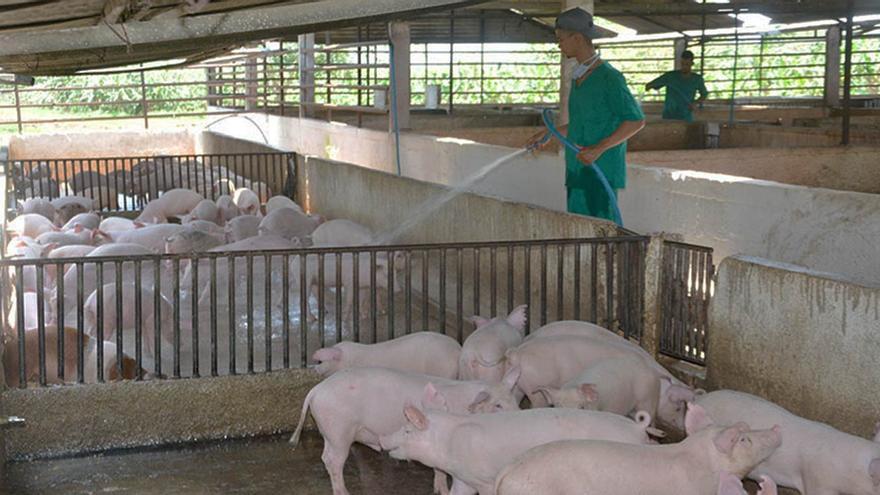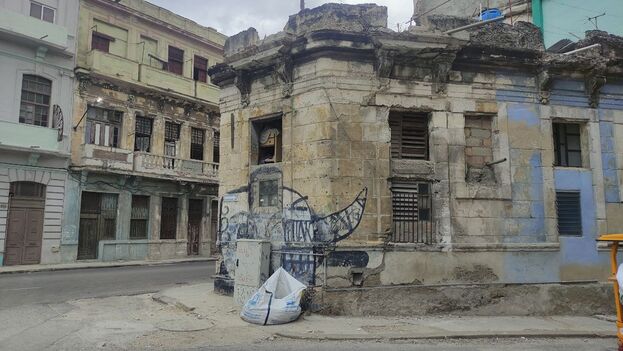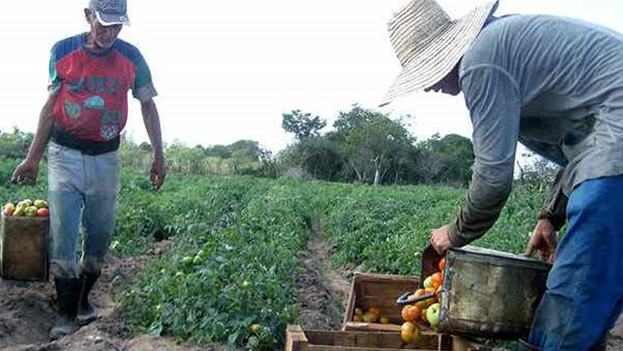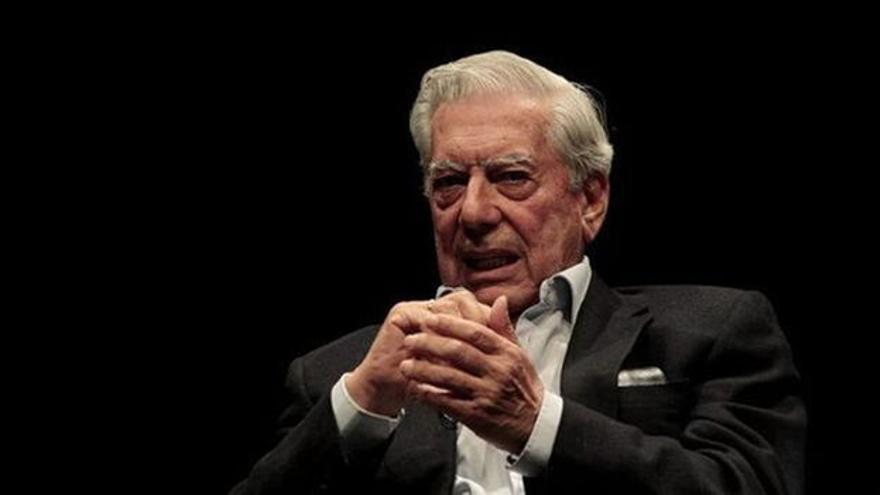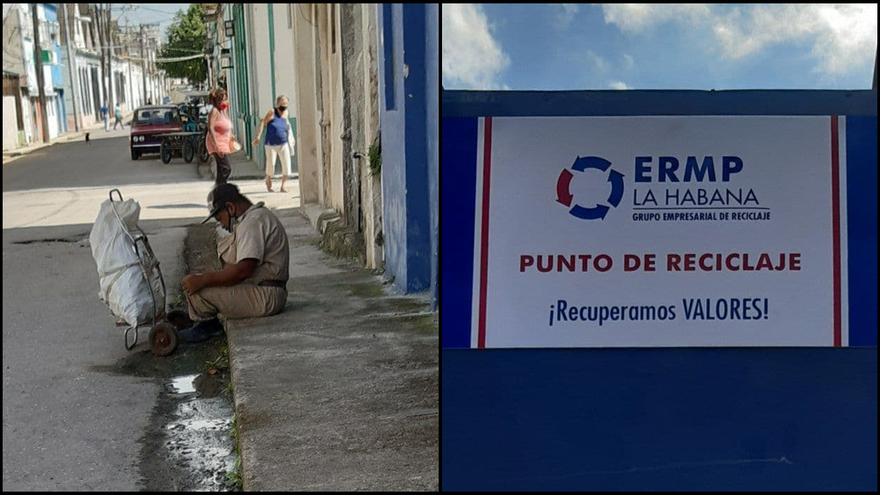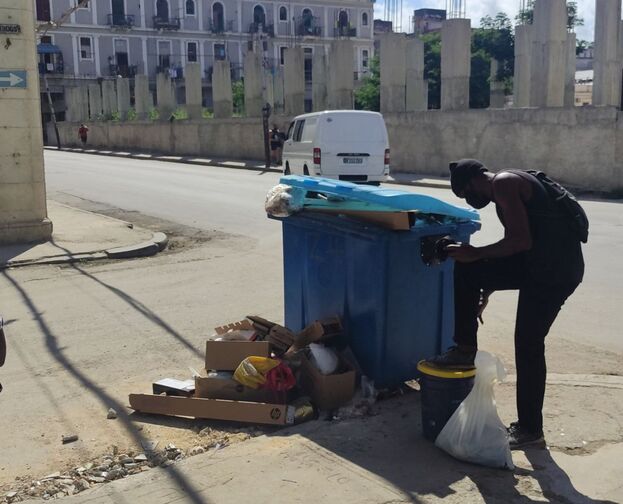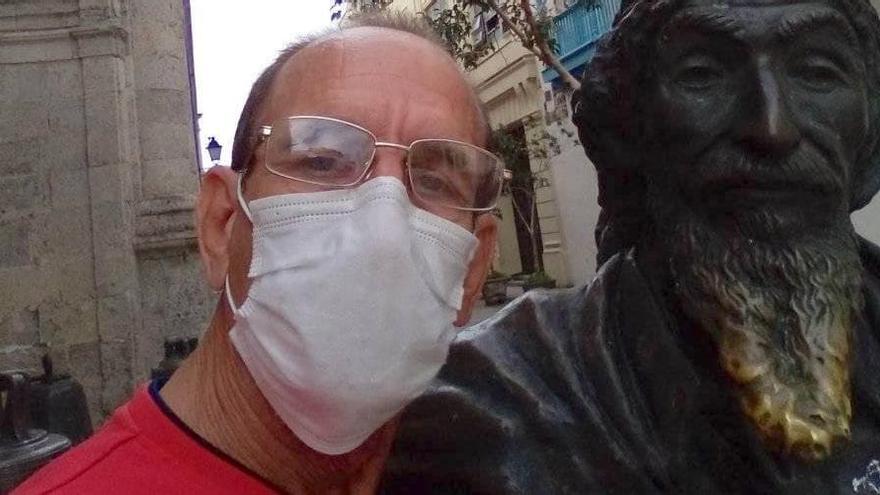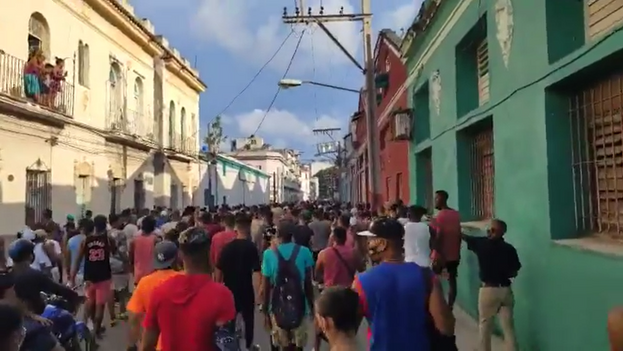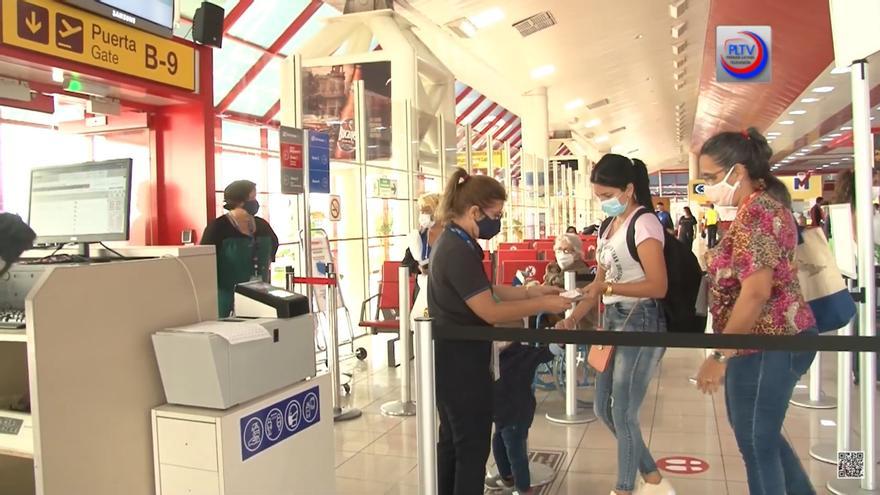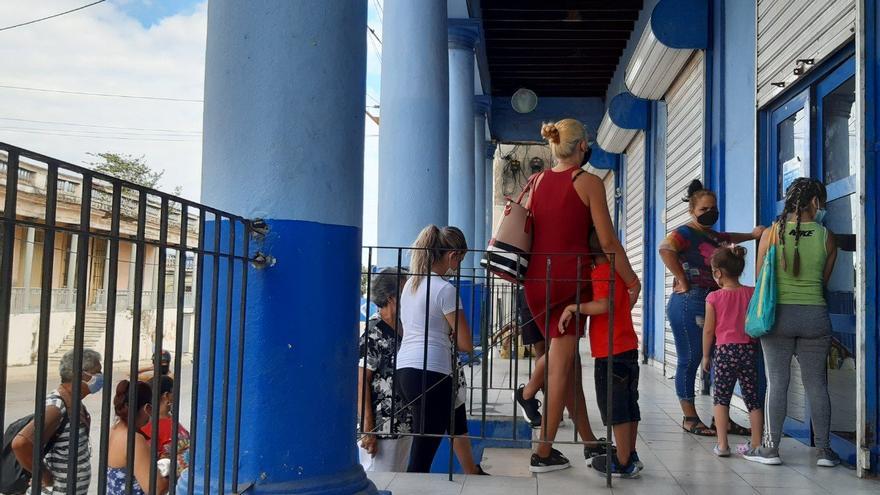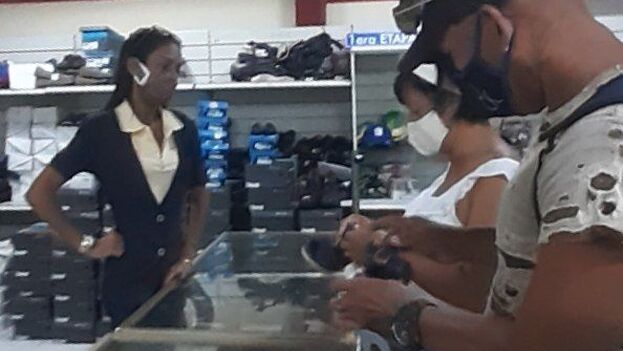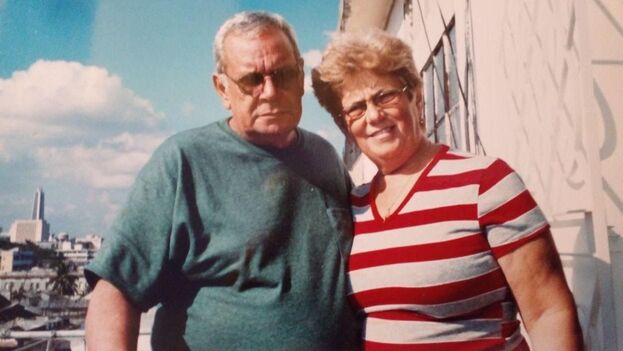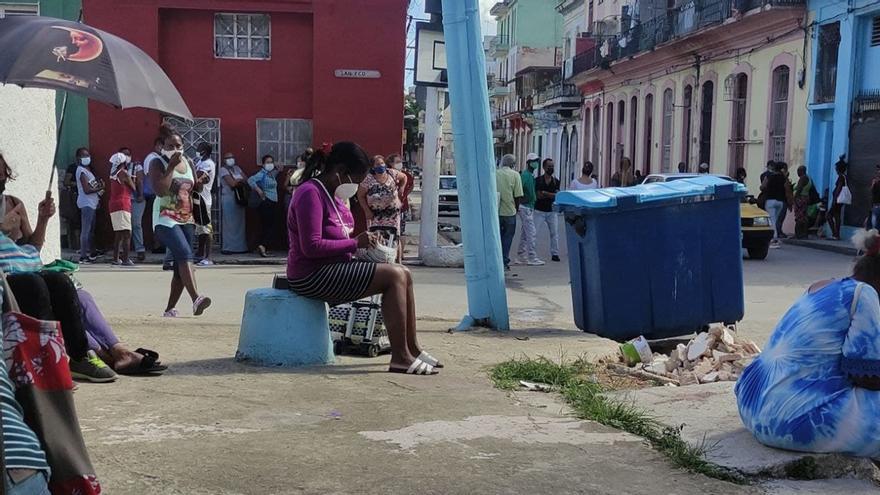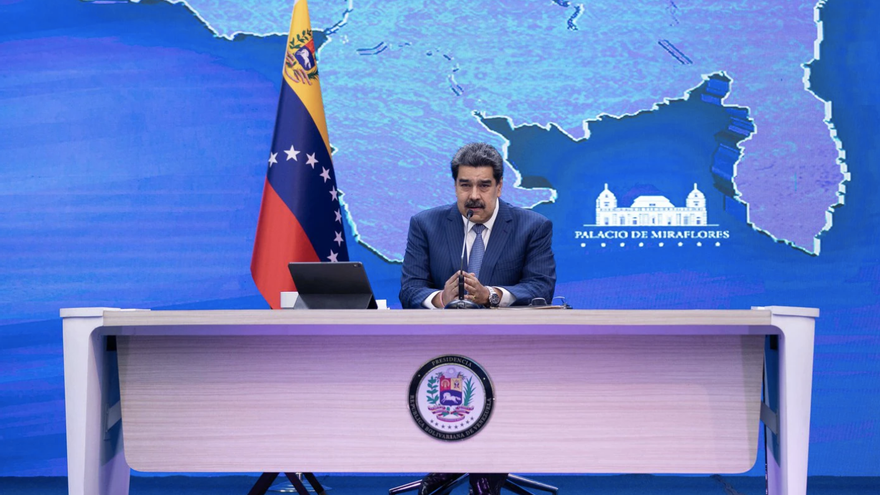What to say? It is true, but I have not forgotten Cuba. Although it has very little to offer me, the Island is, of course, bigger than me. She will be there when I am gone and I will remain attached to her until the end of my days. Why make unnecessary excuses? If I had to offer a larger reason, I would say tying me to Cuba is her pain. It hurts to perceive the orphanhood that Cuba experiences in situations such as those of July 11. Tyrians and Trojans are silent*, whether due to ignorance, laziness, omission or opportunism.
It is time to show the world two things: that this dystopia that they still call Revolution has nothing to offer the ordinary Cuban and that there is the potential to organize a better government. The negative (or positive) impact of that Revolution on those I met shows me that today both assumptions are undeniable, here are some examples.
My apologies in advance for some personal references; although it seems pretentious, I conform to the idea that it is the most honest way of arguing. Also for the scant details, the abrupt changes in the narration for the sake of brevity and some incomplete names to protect identities.
I was born in Cuba in 1963, in a small valley in the central region between hills. We were poor peasants and also happy dwarves, so this memory still makes me nostalgic. As a child I liked to think that it was an important place, the place where the sun would hide when we did not see it, it would appear in the morning on the hill La Campana and in the evening it would slip away through the hills of Piedra. I told my first teacher, Rosa, this one day and she said: “That’s right, Yamil, we are the center of the universe.” She smiled and from then on I loved her until the day she left this world, poor and disappointed.
Rosa was trained at what was then called a ‘normal school’ as an elementary school teacher, and the neighborhood identified her as a synonym for a good teacher. When I met her, she was still living in the little house continue reading
attached to one of those rural schools that were built during the Government of Grau, or was it the first Government of Batista? Under the pretext of enlarging the school, they stripped her of her house and offered her a hut owned by a “
gusano” (worm) who had emigrated and which adjoined some stables for the shipment of cattle.
Before leaving Cuba, I went to visit her for the last time, without much refinement already, and while she was trying to feed some starving chickens with a little cooked rice she told me: “The stink of shit and the politicking made me leave the teaching profession.” She considered that the Revolution had massified education and that now rural people, like me, could aspire to something more than a sixth grade education, but that they had been wrong to prioritize politics and not education.
Early on, the Revolution taught us that society was divided into classes and that the class struggle was the driving force behind progress. We were taught that Cuba before 1959 was backward capitalism, dominated by large estates and gringo companies. In Punta Diamante, as my neighborhood is called, I got to know three large landowners, the kind the propaganda was constantly reminding us about how bad they were. I did not identify them as such; ultimately, they were all decent people, they had stayed in Cuba and did ordinary jobs. Orestes Castellón herded cows to the slaughterhouse, Justo Batista herded pigs and Patricio Catano tended to the little piece of land that had been left to him.
Over time the cows, the sows, the stables, the colorful gates were lost, the jetty was closed; in all, no one raised cattle any more. It was of no use to Rosa, since she had already moved to another neighborhood.
On the farm of Chamán Milla, another large landowner whom I did not know personally, two large dams were built that ended up filling up with an invasive weed that stank and drying up all the streams in which we used to swim as boys.
When the “food plan” came in, supposedly to plant vegetables, they destroyed the last thing that was left standing, an avocado that many people harvested in season. Nothing more was heard of the aforementioned plan, and there wasn’t a single pumpkin to break the news.
My father benefited from the agrarian reform when he received a little under 200 acres from the Chamán estate, with a permanent commitment to plant tobacco. Each year he planted between 60,000 and 80,000 positions, and the government paid him 32 Cuban pesos for every 100 pounds of “main” tobacco, at a time when the dollar was priced on the street at 120 Cuban pesos. Ironically, one day passing through Heathrow airport in London, I found a business offering a single Cuban cigar, barely 10 grams, at 22 pounds sterling.
My father never enjoyed any privilege, nor did he take vacations, he worked every day of his life from four in the morning until the sun went below the horizon, and he died of a heart attack. Due to lack of transportation, he reached the hospital on foot, five kilometers. There they told him that his condition required that he be taken to the provincial hospital but that there was no ambulance available. If it hadn’t been for one of my sisters, who is a nurse, he would have died right there. Those were the times of “31 y pa’lante” — onward!
There were two stores in my neighborhood, one previously owned by Honorato and the other by Piñero. Honorato lived for about a hundred years, patient and circumspect, every day he sat in the little park in front of what had been his store, confiscated in 1968 and now turned into a tobacco warehouse, I think to catch the morning sun and see how it collapsed board by board.
Piñero was less lucky, or more? He did not survive the interventions. The revolutionaries put a loudspeaker on him in front of his house to shout “paredón, paredón” [literally ‘wall, wall,’ meaning the wall before the firing squad] at him day and night with the support and complacency of the poorest people in the neighborhood, the same people who benefited by buying on credit from his store.
Years later I asked one of those poor people who was there then and now, without a doubt, he was even poorer: “How bad was Piñero?” He was surprised by my question; apparently he couldn’t find much to say and after a while he said to me: “Well, he deserved it. Berta (his wife) overcharged and he played dumb.”
The neighborhood was left behind when they sent me on a scholarship at the age of 11. At first it felt like I was a prisoner, but over time the human animal gets used to everything. I did high school and pre-university in unspeakable schools. Even so, it was not uncommon to find good teachers that I still remember, almost all by nicknames such as El Butano, Newton, La Meiótica, El Manco, El Peón and a long etcetera. I was never a very diligent student and it wasn’t until college that I really started paying attention to my education.
While in my neighborhood, under threat of accusing them of the “crime” of dangerousness, they forced the girl Maria Antonieta and the cross-eyed Agustín to climb into a boat and go out through the Mariel, the first for “fag” and the second for “bisnero” — hustler. I was going to college. I was lucky enough to arrive at the Central University of Las Villas (UCLV) in the fall of 1980, a magical time for many, tragic for some. As a result of the communist assemblies, several students had been expelled from the university, including one of the best students from the Faculty of Chemistry, surnamed Cervelló.
No surprise, at the entrance of the university there was a huge sign where you could read a clear and exclusive message — “The University is for Revolutionaries” — and Cervelló wanted to leave Cuba.
On the other hand, the time for improvisations by technical personnel had passed, even many professors had graduated from Soviet universities or from other countries of the socialist camp. There I met exceptional students and teachers. There were mediocre ones, but who cared?
I also met Díaz-Canel at that time, although I barely spoke words with him. While he was in the UCLV he seemed a reserved and intelligent guy, something rare among the excitable Cuban leaders. After he passed to the Provincial Party, I began to hear horrors from him. As a friend said, “this one had his brain transplanted by a poplar.” It seems that 11J (July 11) proved my friend right.
During those years, an atmosphere of discussion and exchange was developed at the UCLV that was quite productive for everyone. We were disconnected from the world, but somehow people managed to gather information. We moved from one faculty to another either for a computer talk, a cultural, sports or scientific activity. We exchanged forbidden books wrapped in newsprint and laughed at bureaucracy and political foolishness.
However, if questioned, most of us would feel like revolutionaries, with a few exceptions. We did not intend to end the Revolution but to transform it. Finally, many of us discovered a dark background in the process and found those turning points that led us to change our point of view.
I could cite many similar experiences, or much worse, but I will only refer to one. One day, going to the Chemistry Department, I stopped to say hello to a colleague, I’ll just call him Jorge. He worked in the computer center, an entity that in turn had become a benchmark for all of us who did something in the science area. This colleague had been a medalist in a mathematics Olympiad and his name along with that of my friend David were obligatory mentions when talking about the calculation center.
It turns out that that morning he was working in the green areas of my building and I joked that he was doing “voluntary” work. He replied: “No, no, I’m being punished because my sister complained to me and I have to do this to get permission to leave.” It seemed to me what it was, a stupid and unnecessary humiliation. I remember asking him if he wasn’t sad about leaving Cuba and he answered something like this: “It would be sad for me not to take advantage of this opportunity because of an ideological commitment.”
My father-in-law was the director of the Santa Clara bread and candy company during the agonizing years euphemistically known as the Special Period. Anyone would say that being a leader, he would not have as bad a time as others. I was a witness to the thousand and one nights of sleeplessness that this kind gentleman dedicated to the company that finally led him to his grave at the age of 53. I frequently saw him get up at two in the morning to travel to Havana and get them to give him some flour from the “commander’s reserve” to take to Santa Clara and prevent the distribution of the piece of bread from the quota.
With his natural intelligence and the work my father-in-law did for that government, he would have lived comfortably anywhere else in the world. He died of a massive heart attack during volunteer work. I was no longer in Cuba, but I learned that Díaz-Canel went to say goodbye at the wake. That in burying and giving speeches there is no one who has the upper hand.
I’ll leave it there. As the poet said, “it hurts the cojones of the soul” to see a country that was about to make the leap to modernity move rapidly towards the abyss, consumed by the ideological mange of Marxism. What hurts the most is that a government that was supposed to create conditions for individuals to develop fully sees their human resources drained from day to day and does nothing to correct it, and, on the contrary, encourages it with the sole interest of staying in power.
The owner of everything is named, the university, the street, the land, the air, I ask? But who does the Revolution serve? It definitely did not serve Rosa, Orestes, Justo, Patricio, my father, Honorato, Piñero, Cervelló, Jorge, David, my father-in-law, the artists of 27N (27 November), those who protested on 11J (11 July) and many others. Who does your Revolution serve, “president” Díaz-Canel?
You could say, as the Americans say, that my article is tainted with cherry picking, that I have chosen certain unfortunate facts to validate my opinion. That there are peasants who are still grateful for the agrarian reform, that professionals like Ricardo, Mateo and others remained in the calculation center (well, I don’t really know if Mateo is still there, so many have left Cuba). Not so, convince yourself; my stories continue to show a cross section of the Cuban reality.
If you have real power, prove it and we will restore the dignity of your office without putting the word president in quotation marks; let the Cubans demonstrate peacefully on 15N (15 November), call for harmony, let the talent from here and there come together for the benefit of Cuba.
Insisting with outdated economic recipes, ideological precepts and an obsession with power is stupid and condemns Cubans to live as beggars. I can admit that you think you are not doing things out of evil, but as Dietrich Bonhoeffer warned, “stupidity is a more dangerous enemy of good than evil itself.”
________________________
Editor’s Note: The author was a professor of Chemistry at the Central University of Las Villas between 1986 and 1994.
*Translator’s note: A quote from Cervantes’ Don Quixote. From the Aeneid, Tyrians and Trojans represent irreconcilable enemies.
____________
COLLABORATE WITH OUR WORK: The 14ymedio team is committed to practicing serious journalism that reflects Cuba’s reality in all its depth. Thank you for joining us on this long journey. We invite you to continue supporting us by becoming a member of 14ymedio now. Together we can continue transforming journalism in Cuba.
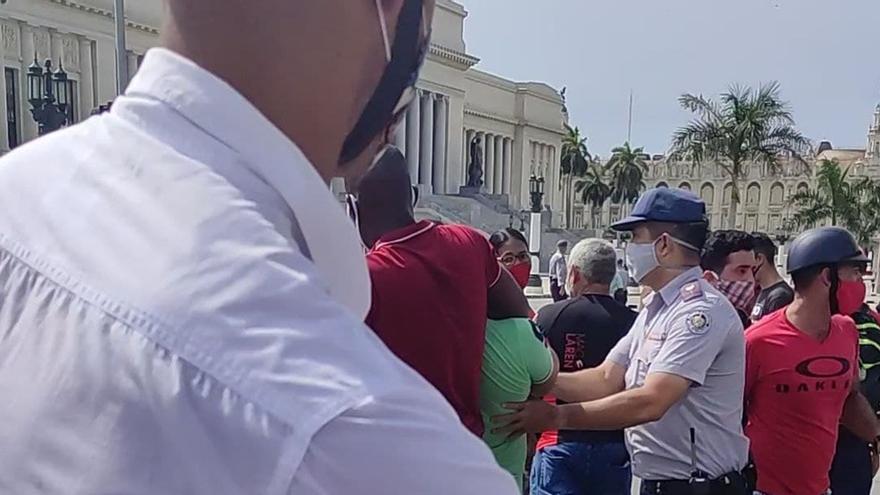
![]() 14ymedio, Havana, 10 November 2021 — “We do not want to see the police beat their own people again,” 15 Cuban Catholic priests say in a letter released this Wednesday, with less than a week remaining before for the Peaceful March for Change. “We do not want blood to be shed again,” or “to hear gunshots again,” insist the priests, “that is not the path that will take us to the Cuba we need and that we all desire.”
14ymedio, Havana, 10 November 2021 — “We do not want to see the police beat their own people again,” 15 Cuban Catholic priests say in a letter released this Wednesday, with less than a week remaining before for the Peaceful March for Change. “We do not want blood to be shed again,” or “to hear gunshots again,” insist the priests, “that is not the path that will take us to the Cuba we need and that we all desire.”
